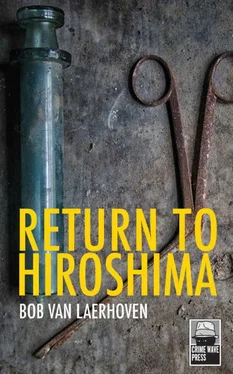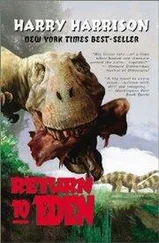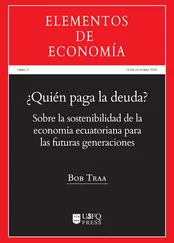* * *
In her mind’s eye, Beate Becht pictures Satsuo Nakata walk through the rubble in the surreal light. The man bends over, peers at the dead, distended infant and takes photos from all sides. She looks at the reproduction of Nakata’s picture in Lens , then at the cover photo of the Japanese magazine. The two deformed babies are identical.
Beate wonders whether she’d be capable of such a thing, taking pictures of a tiny corpse in a place where death reigns supreme. How could Nakata have ignored the risk to his own life? What drove men like her father and his Japanese colleague to sacrifice their lives to bear witness, to testify? She’ll never understand. In the past months, she’s often wondered what she’s hoping to achieve with her new book project. Is she trying to expose the cruelty of the human race? Or exorcise her own ghosts?
She calls the project a homage to her father and it’s the reason for her stay in Hiroshima. Becht has collected her father’s unpublished photographs, ranging from his last pictures taken during the Gulf War in Baghdad, portraits of babies with AIDS in South Africa and child soldiers from Angola, to an astonishing series about the zeru zeru , Tanzanian albino children who are hunted down and murdered for their hair, skin and bones, which magicians grind to juju powders believed to turn any man into a sex god. Beate uses the material in collages, combining it with her own punk photos, in which her models – teetering on the balance between male and female – parade their hidden sexual fears and aggressions. She wants to end on a completely different note: a serene series on Hiroshima during the fiftieth anniversary commemoration of Little Boy on August 6 th. They’re planning a nocturnal procession with lanterns illuminating prayers for peace painted on huge silk banners. Beate is hoping it’ll be surreal, like a fairy-tale. She wants to stay in the city for the next couple of weeks, soak up the atmosphere, and then come back in August. A number of famous writers have agreed to contribute pieces on war and violence to her book. The project looks good on paper – her publisher leered at her when they signed the contract and waved his trademark silk handkerchief – but for some reason Beate has been feeling low for over six months. Her shrink, who charges ninety marks an hour, said something about an existential-artistic depression with symptoms of a deep-seated father complex. The brylcreamed psych licked his lips and rattled on about “affectivity issues” and “bisexual impulses”. He prescribed Clonazepan, Anafranil and Valium, but they didn’t seem to help. One minute she felt listless, the next overwrought. Patience and a new appointment. These things take time , her psychiatrist pointed out, especially with someone as sensitive as you . Beate takes another look at the baby on the magazine cover, and then at the picture Nakata took after Little Boy had fallen.
Twin brothers?
Hiroshima – the Suicide Club squat – Kabe-cho – Mitsuko – night, March 13 th/14 th1995
Chronology. The word haunts me. Have years of loneliness eroded my memory, or am I a person without chronology? “God is omnipresent, even in the smallest parts of himself.” Reizo’s pompous words have stuck in my mind for some reason. After all, my father was revered as a god by some. I don’t believe that a lack of chronology drives you mad. But with a mind like mine, a mind that wants to shine its light into every hidden corner of my being, what does it do?
“Revered as a god by some.” Easy to say, perhaps, but it’s only when you really think about the situation that you realise how weird it is. I took the veneration of my father for granted, but “some” didn’t refer to just anyone; they were men of high social standing. As a people, we adore secrets. We form underground brotherhoods that have tattooed a cult of complex rituals, mutual dependence, bloodlines and ethereal goals onto the map of our society. The Yuzonsha , the society of my father’s followers, is one such a brotherhood. I tried to listen in to one of their meetings in February 1994, a little over a year ago. I’ll never forget it. It marked an irreversible turning point in my life. Lying on a hard mattress, in this damp space that was never meant to be lived in, I relive the scene as if I’m sitting in the old Hashima cinema, watching it like a war film from long ago, with a cast of black-and-white characters I don’t know and can barely understand.
Hashima Island – an old block of flats – Rokurobei, the Yuzonsha and Mitsuko – February 15 th1994
All the buildings on Hashima Island were disintegrating. From the top floor of a block that had remained more or less intact, I watched the members of Yuzonsha wade with dignity through the rubble of slate-grey structures that had collapsed decades ago. The clouds hiding the moon took the shape of a dragon, dark and menacing, only its head glowing with silvery light. A row of red lamps marked the path leading to the spiral staircase, known as “the stairs to hell” by superstitious fishermen. The massive balconies of the half-collapsed neighbouring block were leaning against it, their haphazard shapes shrouded in the lamplight and the darkness. Our classical poets called the night the mother of our fears. If that’s true, my father was her lover. His display of decorum struck me as simply theatrical, but it worked on his followers.
I was in my father’s study. The building was fitted with powerful generators. The room was full of the latest Toshiba desktop computers, with access to the Internet. We received radio and television stations, and owned a brand-new satellite telephone, the type reserved for high ranking army officials. The technology was in its infancy then and the quality of the connection left much to be desired. The person on the other end often sounded as if they were speaking underwater. That was what my father’s voice sounded like in my dreams, when he got angry at me for trying to convince him that I wasn’t like him. I rebelled, like all teenage girls. On television, and later Internet, I discovered a world completely different from the one I lived in. Father said this was our destiny as forerunners of a new race. It sounded too far-fetched to me. Besides, the mirror didn’t lie. I saw us as failures of nature. I wanted to know how that had happened. My father only answered: Shoganai . We are as we are. By sheer willpower and ruthless ambition – and as I later realised resentment – my father tried to twist our abnormality into a mark of superiority. But I couldn’t do the same. He kept insisting I had no right to be different from him. What had made him so sure? I decided that to understand my father, I’d have to plumb the depths of his past. One of his characteristics that baffled and sometimes frightened me was his changeability. I’ve never seen him at peace with himself or others. I believed his restlessness was a flight from himself. When I told him what I thought and used examples to back up my theory, he just threw back his head and laughed. He called me his “personal little soul shepherd”.
But was I wrong? One moment, he was urging scientists of Yuzonsha to conduct genetic experiments and extensive research on artificial intelligence. The next, he was obsessed with the idea that Japan would have to go to war with China, the “Sleeping Dragon”, if it wanted to maintain its dominant position in Asia. At the same time, a rifle through his personal documents taught me that he was one of the biggest importers of drugs from the Chinese province of Yunnan, a place alive with the brightest poppy fields and the darkest rivers. The rivers seemed to flow in parallel lines and on a map they looked man-made, but in truth the water irrigating the red and green poppy fields came directly from the Himalayas.
Читать дальше












